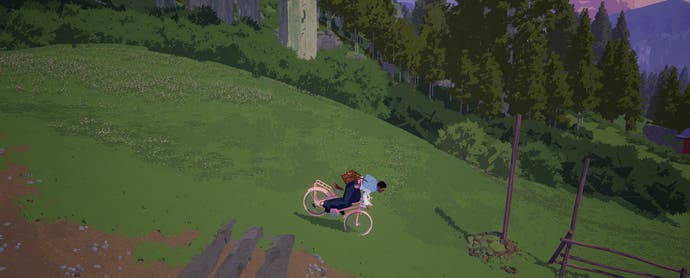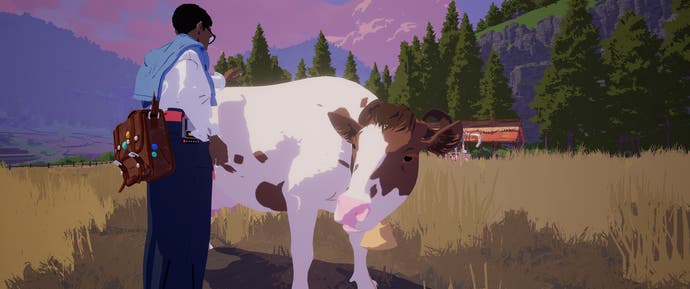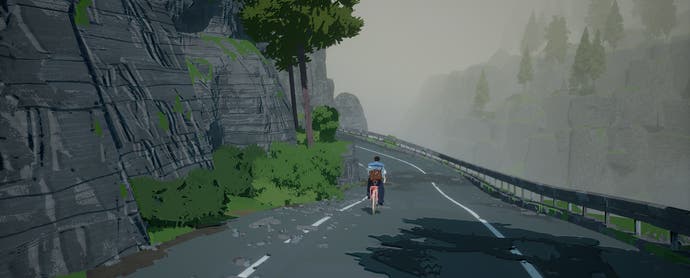Season's smallest moments are reminders of the real world
On bicycles and note-taking.
I dream of bicycles.
Years ago, disability took cycling from me, and ever since I've waited for a game that might capture my rouged memories of it. At last, Season has done it.
Scavengers Studio's Season: A Letter to the Future casts you as documenter of a fading world. A world in which a sleeping sickness slowly degrades, and eventually devours, memories is making the idea of history... well, history. Protected by a memory pendant, our nameless avatar ventures into this wide world with a camera, a sound recorder, a scrapbook, and a bicycle.
In decades of playing video games, none have captured so perfectly and precisely the sensation of simply riding a bike.
In other games, vehicles are simply a way to move from point A to point B faster than feet can carry us. But Season understands that movement isn't just a tool; it's an experience. It captures the cooling rush of air as you ride an open road, the serenity of coasting and taking in the scenery, the rush of careering down a hill with no effort at all.
There's heft - visceral weight - to Season's cycling that makes it less a simulation of riding a bike than a simulacra. It's tapping not into the realities of cycling - anyone who has cycled in Cambridge knows it's not all as pleasant as described above - but rather folds into the representation created in my own wistful memories.
The peril of Season's world is forgetting, yet it vividly reminds me of cycling flat roads, the change in sensation and speed when moving to grass, the crackle of wheels on dirt, the ocean-like rumble of riding over gravel. It doesn't just happen in front of me - I can feel it. I feel memories reaching out from the void of passed time to grab me in Season's vibrant and noisy world.
There is a strong chance we are living in the beginning of the end of the world. But we're not so far gone that Season's quiet cataclysm doesn't feel alien. It is a world forgetting itself and, deliberately or not, it is the small things that shine through the miasma of amnesia that feel familiar.

In so many corners of Season, I find shades of my old life. Real-life fading memories carried on the white streaks that breeze past my bike, in the fascination with symbols and machines, art, and everything that came before. There is a meditative nostalgia to Season that few other games capture so well.
Even the act of filling scrapbooks with endless observations is familiar. This is done under the guise of recording history, when really it's about building up a record of one's self. I, too, filled books with scribbled drawings, snatched poetry (even though I hate poets), and notes that merge with addresses and dates I hope to remember.
A carefully detailed personal history that is now lost in musty lofts, vacated houses, or boxes in the corner of a new, limited life.

Disability took cycling, but life took note-making. Those little moments of creative expression felt surplus to a greater goal, and a perceived sense of urgency to reach it.
Yet, Season, for all its physical scope, delights in those small things. Little reminders of the real world inside a careful and elegant fantasy. The game offers objectives, but I just found myself cycling in circles. Visiting cows, rearranging notebook pages, and listening to the gentle rumbling sounds of the world.
It's ironic that a game with forgetfulness at its core reminds me of so much. Of what was taken, but also what I left behind. It makes me wonder what I might retrieve and what might inspire me to do so. Is it my own change of season? Or perhaps I'll have to wait for the end of the world? Or, maybe, the meandering calamity at the heart of Season will be enough.


